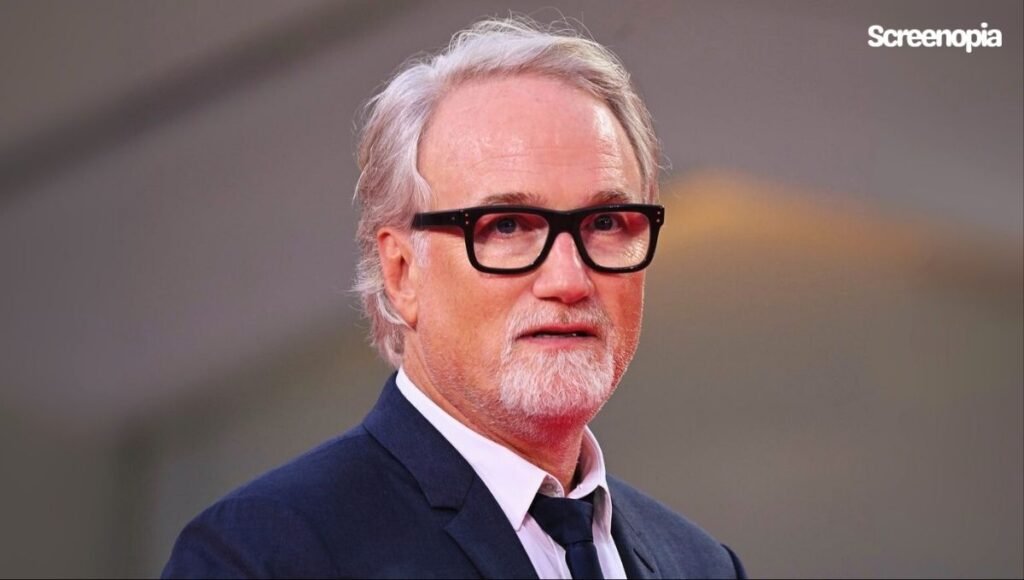If you’re a fan of movies that pull you into intense psychological drama and dark storytelling, there’s a good chance David Fincher’s work has already kept you on the edge of your seat.
Known as one of the most influential directors of his generation, Fincher’s name is synonymous with carefully crafted thrillers and stylistic visual storytelling.
But what makes him so captivating?
Let’s dive into the life and filmmaking craft of David Fincher, the visionary director who forever changed the way we experience suspense in cinema.
Who Is David Fincher?
Born on August 28, 1962, in Denver, Colorado, David Andrew Leo Fincher grew up just outside San Francisco in Marin County, California. With a mother who worked in mental health care and a father who was a writer for Life magazine, Fincher’s upbringing was rich with creative influence.
Growing up in a neighborhood near George Lucas, the legendary filmmaker behind Star Wars, Fincher was immersed in a world of cinematic imagination from a young age.
His passion for directing sparked when he asked for an 8mm camera at just eight years old, beginning a lifelong dedication to storytelling through film. Eschewing formal film school, Fincher learned his craft hands-on by working on movie sets and then honing his skills at Industrial Light & Magic (ILM), contributing to classics like Return of the Jedi and Indiana Jones and the Temple of Doom.
From Music Videos to Hollywood Masterpieces
Before making his mark in feature films, Fincher earned acclaim directing music videos for some of the biggest names in music, including Madonna, Michael Jackson, the Rolling Stones, and Justin Timberlake. His innovative work with Madonna on iconic videos like “Vogue” and “Express Yourself” earned him MTV Video Music Awards and Grammy Awards, cementing his reputation for bold, stylish visual storytelling.
Fincher’s feature film debut came with Alien 3 in 1992, but it was with films like Seven (1995), Fight Club (1999), and The Social Network (2010) that he rose to enduring fame. His movies often explore dark psychological themes with meticulous visual style, earning several Academy Award nominations for Best Director and other prestigious awards.
The Fincher Visual Signature
What sets David Fincher apart in the crowded world of Hollywood directors is his precise and deliberate filmmaking style. Rather than employing shaky handheld cameras or quick close-ups, Fincher prefers locked-down, smooth camera moves that draw the viewer subtly and chillingly into the story.
His compositions often use muted colors with deep blacks and cool tones to create a cinematic atmosphere that feels both stark and immersive. Fincher’s attention to detail can be seen in his blocking and framing, which tell their own story about character power dynamics and emotional tension.
For instance, a simple 50-50 shot in one of his films may signal balance and equality that shifts as the scene progresses.
Fincher is known as a perfectionist, reportedly shooting 50 takes per scene to get exactly the right moment. This dedication ensures every frame has purpose and every story element is crafted to draw audiences deeper into his complex and often unsettling narratives.
Iconic Films That Define a Genre
Some of Fincher’s most celebrated films include:
- Seven (1995): A gritty, dark thriller about a serial killer who uses the seven deadly sins as motives.
- Fight Club (1999): A cult classic exploring identity, consumerism, and rebellion with striking visuals.
- The Social Network (2010): The gripping true story of Facebook’s founding, blending sharp dialogue with suspenseful pacing.
- Gone Girl (2014): A dark and twist-filled look at marriage, media, and deception.
- Zodiac (2007): A meticulous investigation into one of America’s most infamous unidentified serial killers.
Each of these movies showcases Fincher’s trademark style—psychological depth blended with visually precise storytelling. His ability to marry narrative complexity with technical mastery makes his work stand out in the world of film.
Fincher in Television and Beyond
David Fincher’s influence extends into television as well, where he served as executive producer and director on hit series like Netflix’s House of Cards and Mindhunter, the latter earning him Emmy Awards for Outstanding Directing.
He also co-created the acclaimed animated series Love, Death & Robots, demonstrating his versatility across genres and formats.
Quentin Tarantino has expressed his happiness in handing over the directing duties of the highly anticipated sequel to ‘Once Upon a Time in Hollywood‘ to David Fincher. On ‘The Church of Tarantino‘ podcast, Tarantino praised Fincher as his “favorite director” and stated that he believes the two of them are “the two best directors” in the industry.
Why David Fincher Matters Today
In an era saturated with content, David Fincher’s films remind audiences of the power of meticulous craftsmanship and storytelling that challenges the mind.
His work continues to inspire filmmakers and entertain viewers with narratives that refuse to simplify human psychology or shy away from difficult themes.
Whether it’s the tension of a crime investigation, the unraveling of a personal identity crisis, or the dark corners of human nature, Fincher has a unique gift for seeing the story in every frame and making us feel it deeply.



